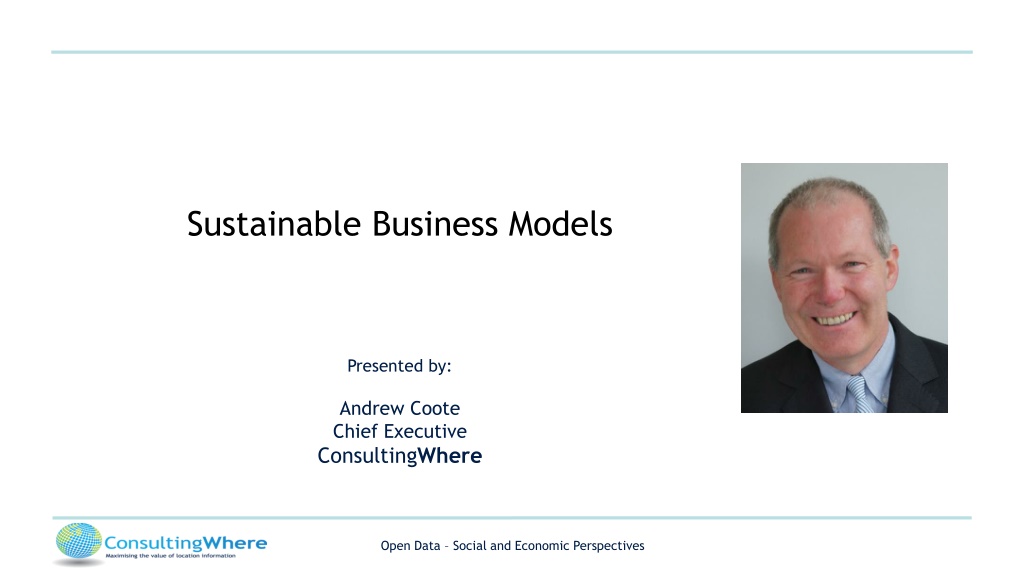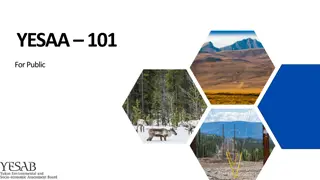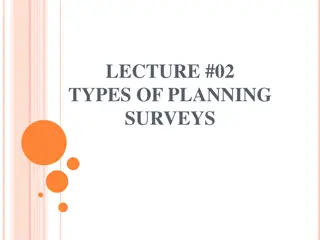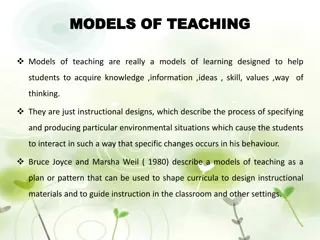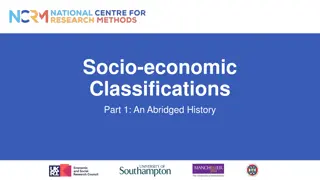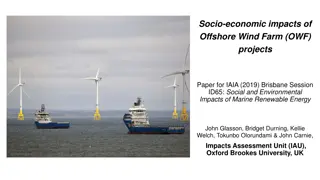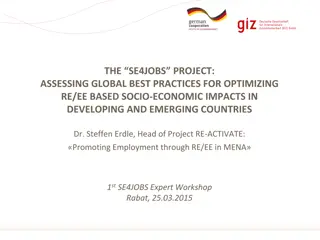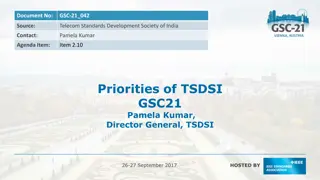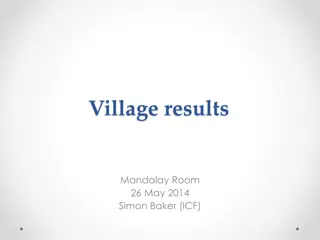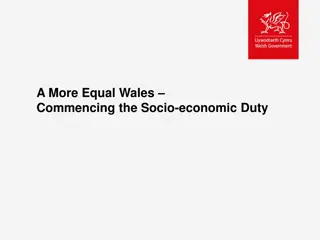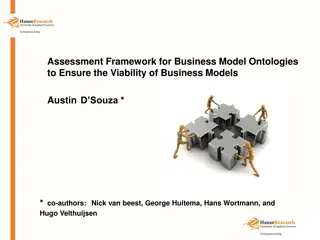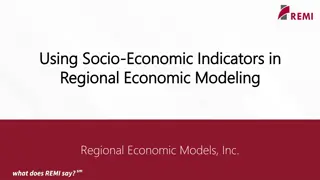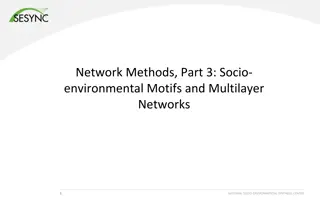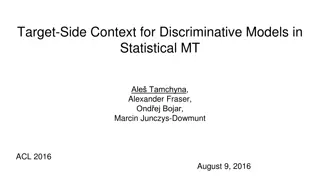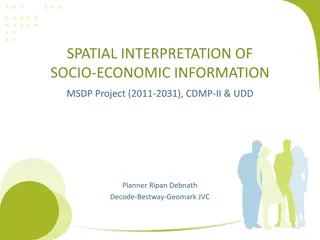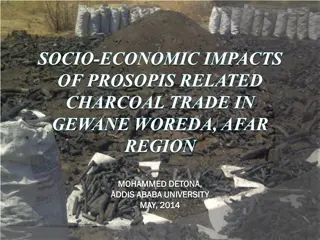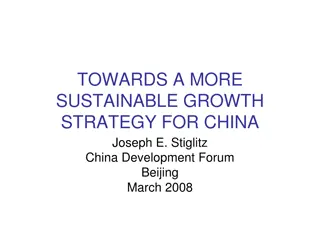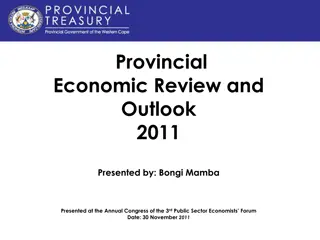Understanding Sustainable Business Models in the Context of Open Data and Socio-Economic Perspectives
Explore the intricate interplay between sustainable business models, open data practices, and socio-economic perspectives presented by Andrew Coote. Delve into the impacts, assessment methods, and the importance of data accessibility in decision-making. Gain insights into the FAIR principles and the implications of open geospatial data. Discover the socio-economic impact studies and the delicate balance between data accessibility and economic sustainability.
Download Presentation

Please find below an Image/Link to download the presentation.
The content on the website is provided AS IS for your information and personal use only. It may not be sold, licensed, or shared on other websites without obtaining consent from the author. Download presentation by click this link. If you encounter any issues during the download, it is possible that the publisher has removed the file from their server.
E N D
Presentation Transcript
Sustainable Business Models Presented by: Andrew Coote Chief Executive ConsultingWhere Open Data Social and Economic Perspectives
Agenda Context Impacts How to objectively assess them NMCA Business Models pivoting for a new world Takeaways Open Data Social and Economic Perspectives 2
Why: Policy and Decision Making You can t manage what you don t measure. - Peter Drucker Source: https://www.thefamouspeople.com/profiles/peter-drucker-132.php Open Data Social and Economic Perspectives 4
Open Geospatial Data? Principles FAIR : Few would disagree with these principles Fee or Free? There is no such think as a free lunch (someone has to pay at some point) Does free today, mean free forever? Budget pressures are increasing Politicians change responsibilities frequently Governments priorities change If funding is reduced how do you maintain data currency? Once this free decision is made Genie is out of the bottle it can t be put back in Whatever the decision - you need to understand the economics. Open Data Social and Economic Perspectives 5
FAIR Principles Open Data Social and Economic Perspectives 6
The impact of Open Geospatial Data? Principles FAIR : Few would disagree with these principles Fee or Free? INSPIRE does not say all data has to be free There is no such think as a free lunch (someone has to pay at some point) Does free today, mean free forever? Budget pressures are increasing Politicians change responsibilities frequently Governments priorities change If funding is reduced how do you maintain data currency? Once this free decision is made Genie is out of the bottle it can t be put back in. Whatever the decision - you need to understand the economics. Open Data Social and Economic Perspectives 7
Socio-Economic Impact Studies (National) England and Wales - Return on Investment predicted at 6:1 for local authority use of National Address and Street data (Period 2022-6). - This data is free at the point of delivery BUT the UK Geospatial Commission pays Ordnance Survey circa 100m per annum for it. Open Data Social and Economic Perspectives 8
NMCA Business Model Options Centrally funded by Government One Ministry provides all (or vast majority) of the funding Cost Sharing e.g. Norwegian GeoVekst model Overseas Development Aid usually needs to be tied to specific project International Financial Institutions: generally only available to low and middle income countries, usually project specific Charitable Foundations e.g. Gates, Ebay Non-governmental organisations e.g. FAO, UN-Habitat, UNDP Value Added Services e.g. data matching, compliance testing Public Private Partnerships land administration - well established business model in developed countries CORS network usage Aerial imagery free to government, chargeable to private sector Open Data Social and Economic Perspectives 11
Cost Sharing GeoVekst (Norway) Strapline: Give a little, get a lot Running successfully for over 15 years Over 600 member organisations - includes commercial organisations All have input to decision making Payment rates decided on basis of relative utility. Coordinated by Kartverket (Norwegian National Mapping Agency Source: https://www.kartverket.no/geodataarbeid/geovekst Open Data Social and Economic Perspectives 12
The Impact of Open Data - key takeaways Data underpins the 4th Industrial revolution exponential rise in demand for authoritative geospatial data to support evidence based decision making. Open data doesn t necessarily mean free - opportunities but also risks. Align to the policy agenda maximizing impact both social and economic. More quantification studies now available. Requires re-thinking the NMCA Business Model Open Data Social and Economic Perspectives 13
Extra Slides Open Data Social and Economic Perspectives 14
Qualitative Benefits Not every benefit is easily quantifiable: Quality of Life Gender equality Reputation Legacy: how you leave the planet for subsequent generations Many such benefits are referred to non-market benefits They can t be bought and sold They should be documented as fully as those that can be quantified. Investment decisions are more often made for political than economic reasons Open Data Social and Economic Perspectives 19
Will Robots Take My Job? Open Data Social and Economic Perspectives 20
Messages for Decision Makers Better Geospatial Infrastructure can: Locate those in the world being left furthest behind Provide the evidence-base for critical decision making Identify inequalities and measures to address them Save lives and reduce costs of damage by improving disaster risk management Realised provable savings from collaboration Provide compelling evidence of the value of investment The ability to create new jobs AND help to save the planet Open Data Social and Economic Perspectives 23
